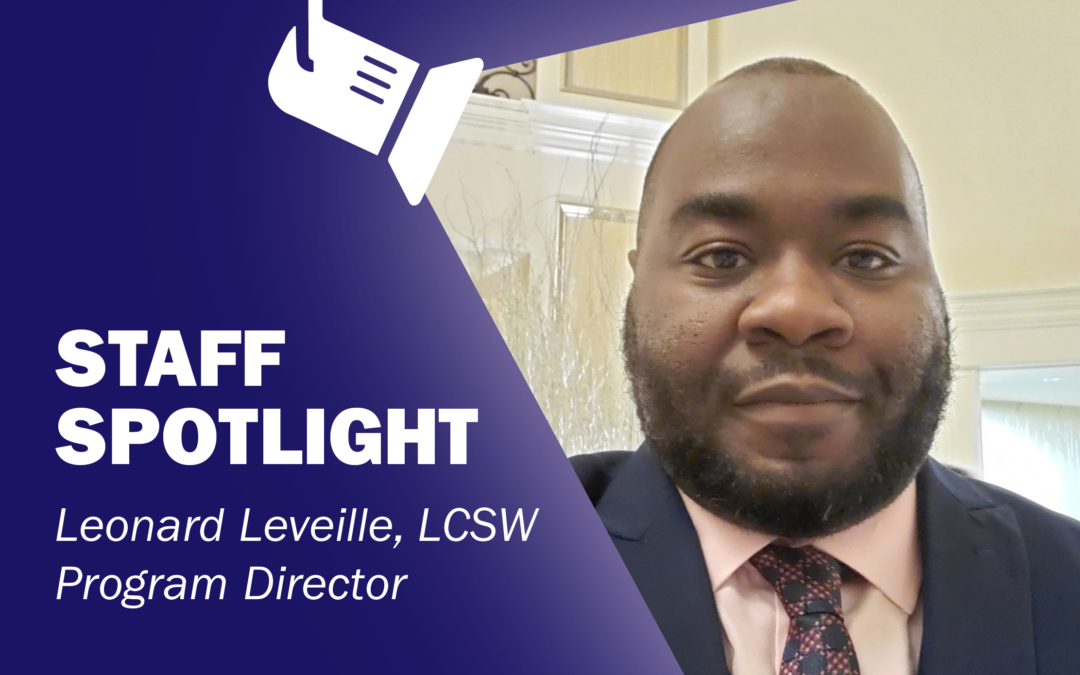We caught up with Leonard Leveille, Director of JCCA’s Helping Hands for Families program, to learn more about his unexpected career in social work.
Where does your professional story begin?
I grew up in Brooklyn, in a family of hardworking Haitian immigrants who valued education and had a strong orientation toward helping others. I’m also a lifelong sports fan and by college I’d begun to imagine a career as a sports broadcaster, but I was reluctant to leave New York to get my start. My mother was a nurse and one day she suggested social work to me. She interacted with social workers at the hospital and found them to be helpful. She thought I had the right personality for it. I took those words and ran with it. The rest is history.
Tell us about the work of Helping Hands for Families.
We support families that have children in the home and at least one member dealing with either substance abuse or mental health challenges. The goal is foster stability, safety, and health––and in doing so prevent involvement with the child welfare system. We meet families where they are––in the community, in the home––and do whatever we can to provide the resources and supports they need. We create a plan, build skills, intervene in crises, and connect clients to services.
What do you find rewarding about this work?
I like feeling that I’ve truly helped someone. It’s gratifying to see clients work step-by-step toward positive outcomes, and in doing so fundamentally change their lives. I’m often most impacted by adolescents and teens already dealing with substance abuse. One mother came to us in desperation, having tried everything to help her son, who’d overdosed a few times and been hospitalized. We stood by her and found the right services for her son. He’s now 25 and calls us to say thank you for saving his life.
What’s your message to a young person who’s just emerging from childhood and already finding their life to be out of control?
Youth who use substances are trying to cope. Whether there’s mental illness, trauma, or chaos in the home, it’s a way to escape the pain. That’s true for parents who use, too. When things seem bleak and unmanageable I sometimes quote Tupac: “Through every dark night there’s a bright day ahead.” I assure young people that at some point you’ll have more control than you do now. You’ll have more tools than you do now. This is not forever.
What’s been most surprising about your career?
I didn’t see any of this coming! I certainly never thought I’d be a supervisor and now a director. I’ve had a lot of chance to grow and move forward. That’s been very rewarding. People along the way saw potential me and helped me to realize it. It turns out that my mother had been right all those years ago: this work fits my temperament and my values. My natural calmness is useful in a field that exposes us to stress, unpredictability, and crisis. Now I try to pass some of that on to my staff.
